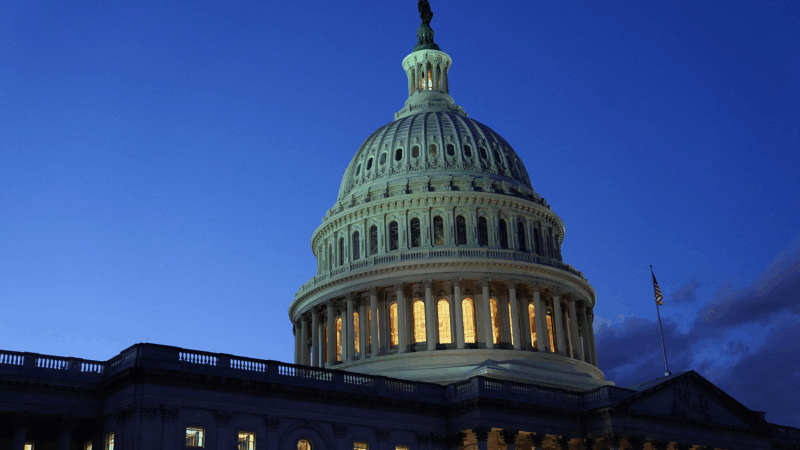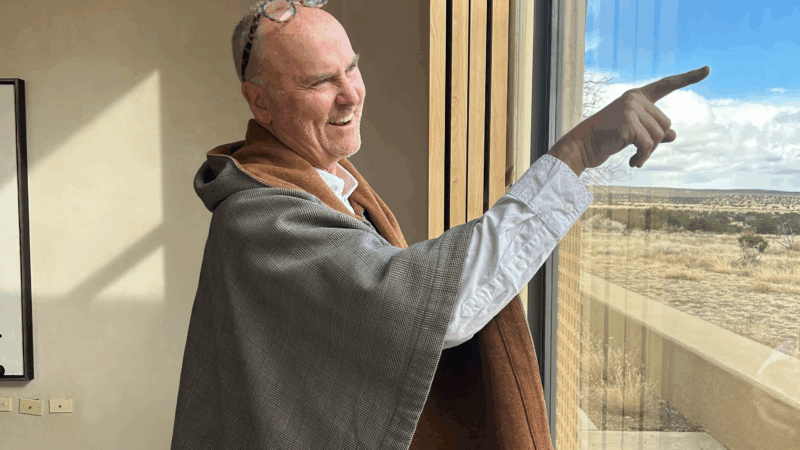Federal judge orders release of Columbia University student Mohsen Mahdawi
Mohsen Mahdawi, a Columbia University student arrested and detained by masked immigration agents after his naturalization interview in Vermont, has been released from detention while his case proceeds.
U.S. District Judge Geoffrey Crawford said Wednesday that Mahdawi’s detention for two weeks, “so far demonstrates great harm to a person who has been charged with no crime.”
Talking to supporters outside the Vermont federal courthouse, Mahdawi said his release sends a message that, “we, the people, will hold the Constitution accountable for the principles and values that we believe in.”
Mahdawi’s release comes with some conditions: He must stay in his home state of Vermont, though he is allowed to travel to New York City for his schooling and to meetings with his attorneys.
The Department of Homeland Security didn’t immediately respond to a request for comment.
Mahdawi is a green-card holder and lawful permanent U.S. resident who grew up in a Palestinian refugee camp in the occupied West Bank.
The Trump administration has asserted that Mahdawi’s presence undermines its effort to combat antisemitism, NPR reported earlier this week.
His attorneys have said he was detained in retaliation for exercising his free speech rights in advocating for Palestinian human rights during campus protests last year against the Israel-Hamas war in Gaza.
They acknowledged there’s a long road ahead on the case but celebrated the judge’s decision.
Mahdawi remained defiant on Wednesday.
“And I am saying it, clear and loud,” he said. “To President Trump and his Cabinet, I’m not afraid of you.”
Some of Mahdawi’s supporters quietly cried and held hands in the courtroom as Crawford read his decision, according to a reporter with Vermont Public Radio who was in the courtroom.
Four top U.S. speedskaters to watch at the Olympics
U.S. speed skaters set to compete in Milan are drawing comparisons to past greats like Eric Heiden, Bonnie Blair, and Apolo Ohno. Here are four to watch in the 2026 Winter Olympic Games.
A ‘Shark Tank’ alum needed cash to pay tariffs. This shadowy lending world was ready
How about $350,000 within hours? The pitches flood small businesses: "No hidden fees, No BS." These financial lifelines are barely regulated and can turn into trip wires.
U.S. skater Connor McDermott-Mostowy joins record number of out LGBTQ Winter Olympians
When U.S. speedskater Connor McDermott-Mostowy makes his Winter Olympic debut in Milan, he'll join a record number of out LGBTQ athletes. But of the 46 out athletes, only 11 are men.
5 glaring warning signs for Republicans in this year’s midterm elections
Here's why Republicans are facing an uphill battle, particularly for retaining control of the House.
Need a new path in midlife? There’s a school for that and a quiz to kickstart it
Schools across the country are offering courses and retreats for people 50+ who want to reinvent themselves and embrace lifelong learning and discovery.
Crackdown on dissent after nationwide protests in Iran widens to ensnare reformist figures
Detained Nobel Peace Prize laureate Narges Mohammadi has received another prison sentence of over seven years.






